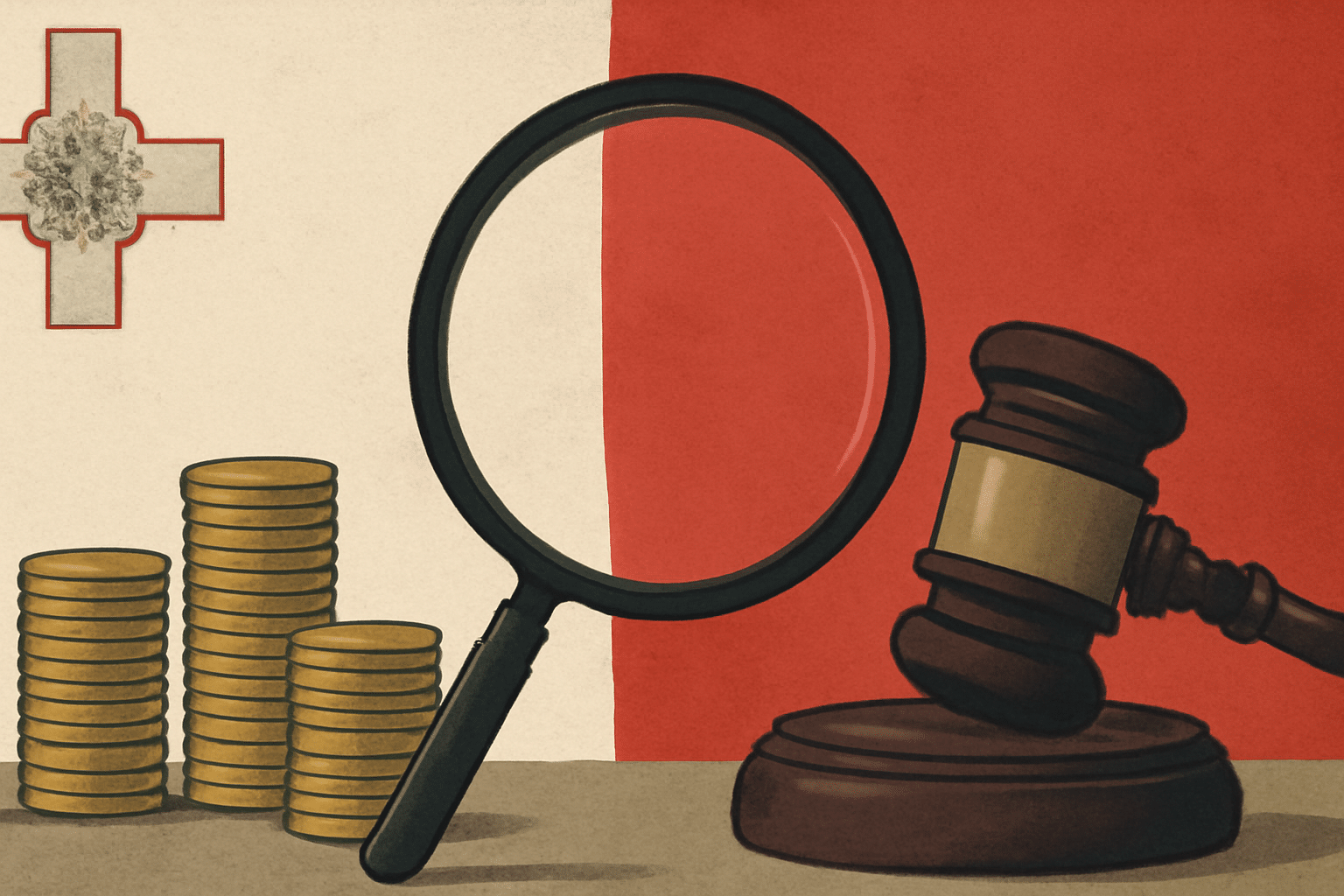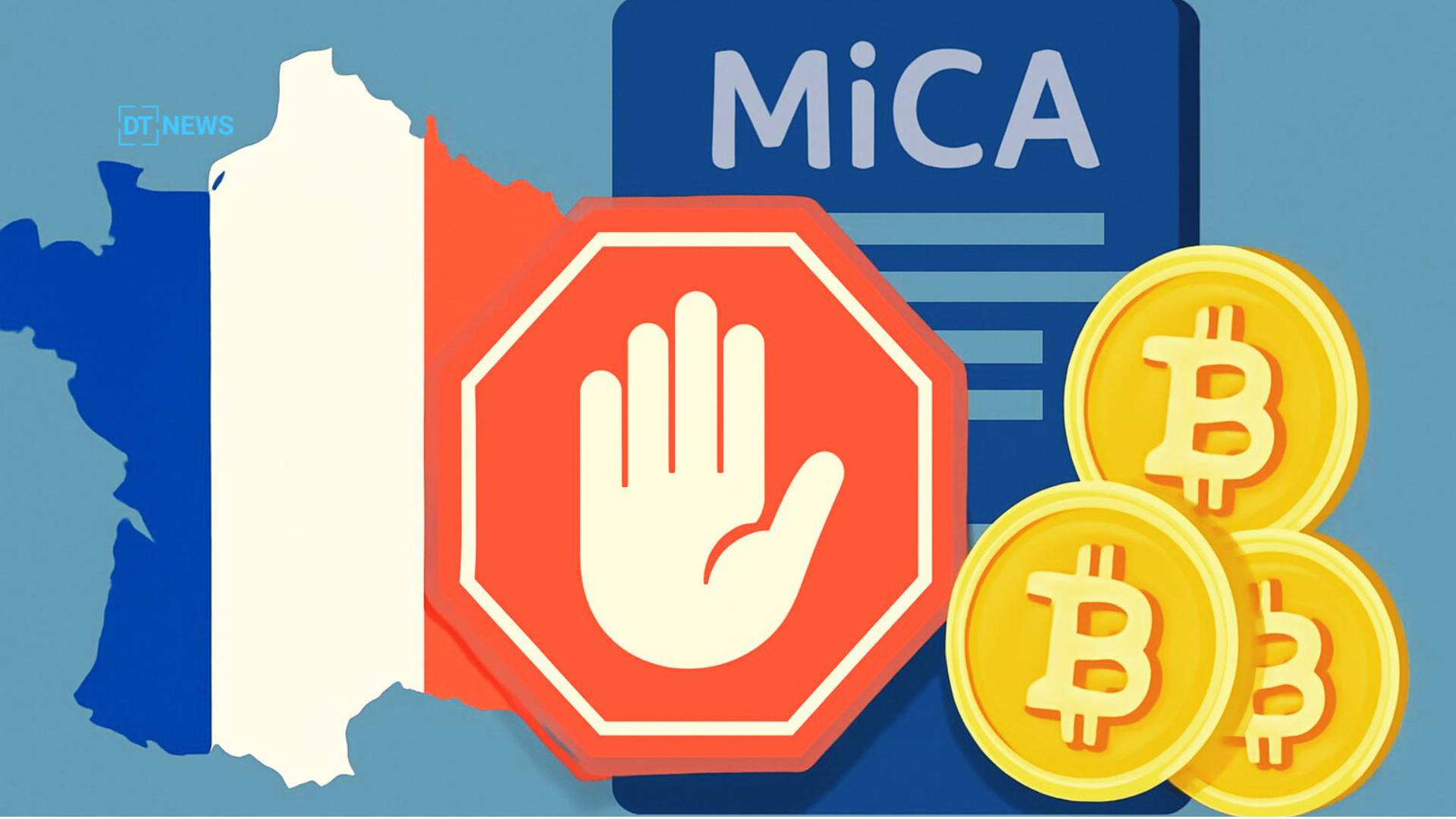France has threatened to restrict cryptocurrency companies in the country that operate locally and obtain a license in other European Union nations. The decision follows the anxieties about the Markets in MiCA license, the initial comprehensive crypto regulatory framework by the EU. The Autorité des Marchés Financiers (AMF), the financial regulator of France, sounded bells over the possible regulatory gaps within the bloc.
- France Considers Rejecting EU Passport for Crypto
- France, Austria, Italy Seek Stronger MiCA License Oversight
- Growing Scrutiny Over Malta’s Regulatory Practices
- FAQs
- What is MiCA, and why is France concerned about its enforcement?
- Why does France want to block crypto companies licensed in other EU countries?
- How does the MiCA “EU passport” system work?
- What changes are being proposed to MiCA?
- How has Malta been involved in the MiCA debate?
- Glossary of Key Terms
MiCA license, which will become effective to crypto-asset service providers in December 2024, will permit businesses licensed in one EU member state to operate in all 27 countries. France is, however, concerned that certain jurisdictions may grant crypto licenses that have less stringent requirements than others. This is what the AMF has proposed by indicating that the companies that hold these licenses might not be permitted to operate in France.
France Considers Rejecting EU Passport for Crypto
The AMF expressed concerns that MiCA’s current framework may leave loopholes in enforcement, especially in certain member states. According to Marie-Anne Barbat-Layani, AMF chair, France is considering rejecting the “EU passport” for crypto companies licensed in less stringent jurisdictions. This would prevent them from offering services in France, even if they are licensed under MiCA by another EU nation.

France’s approach aims to prevent what it sees as potential abuse by companies seeking lenient regulatory environments. The AMF has warned that some jurisdictions may present themselves as “weak links” by offering licenses with fewer requirements. “We do not exclude the possibility of refusing the EU passport,” Barbat-Layani explained, emphasizing that this could significantly impact the market.
This move highlights concerns that uneven regulatory standards could undermine MiCA’s effectiveness. France’s regulatory stance comes as the country, along with Austria and Italy, pushes for greater oversight at the European level. They argue that a more centralized approach is needed to ensure consistent standards across all member states.
Also Read: Major Crypto Exchange Bybit to End Services in France: Key Date Announced
France, Austria, Italy Seek Stronger MiCA License Oversight
France, Austria, and Italy have all called for the European Securities and Markets Authority (ESMA) to take over the supervision of major crypto companies. These countries support ESMA in overseeing the activities of firms licensed in any EU country. The proposal seeks to prevent a race to the bottom, where crypto firms might flock to countries with the least stringent regulations.
The three countries have also promoted amendments to MiCA license such as tougher regulations of crypto-based activities beyond the EU. Another suggestion they make is to improve the cybersecurity of crypto companies and the regulation of the new token offerings. These recommendations indicate an increasing fear about the sustainability and security of the crypto market in the EU.
The idea to delegate regulatory authority to ESMA is becoming increasingly popular following the reproach of Malta crypto licensing system. In July, ESMA published a review that discovered that Malta’s crypto supervision was deficient in several aspects. The ESMA suggested after the review that the financial regulator of Malta should enhance the monitoring of crypto activities by removing the risks that may arise.
Growing Scrutiny Over Malta’s Regulatory Practices
Malta, once a popular jurisdiction for crypto companies, is now under intense scrutiny. The Malta Financial Services Authority (MFSA) has faced criticism after a peer review revealed that its licensing practices did not meet expectations. ESMA’s report noted that Malta failed to properly assess risks and identify material issues during the authorization process.

Considering these findings, ESMA requested stricter supervision of crypto-companies licensed in Malta. The agency requested that the MFSA make adjustments in its supervisory procedures that would mean that all firms will be properly evaluated prior to issuing a license. This is one of the issues that have been given special priority by nations such as France which are pushing towards increased regulation of the EU.
With the increasing pressure on the regulatory gaps, the EU is under increased pressure to make MiCA workable in terms of an effective regulation of the rapidly developing crypto industry. The move to potentially ban crypto companies with MiCA licenses established in other EU Member States shows that France critically requires more consistent enforcement of the legislation throughout the continent.
Also Read: Gemini Secures EU-Wide Access With Malta MiCA License Approval
Summary
France has already expressed its concerns regarding the loopholes in the enforcement of MiCA license, with the possibility of crypto firms licensed in weaker EU regimes not being allowed to operate in France. T
he action comes after calls of centralized regulation of ESMA to make sure that there are the same standards throughout the EU. The increasingly critical attitude toward the regulatory practices adopted by Malta only adds to the discussion regarding the efficiency of the current framework offered by MiCA.
For more crypto news or price predictions, visit our platform.
FAQs
What is MiCA, and why is France concerned about its enforcement?
MiCA is the EU’s first comprehensive regulation for crypto-assets. France is concerned that it may leave enforcement gaps, allowing companies to operate in jurisdictions with weaker regulatory standards.
Why does France want to block crypto companies licensed in other EU countries?
France is worried that some EU countries may offer crypto licenses with fewer requirements, undermining MiCA’s effectiveness and creating uneven standards.
How does the MiCA “EU passport” system work?
Under MiCA, a crypto company licensed in one EU country can operate across all 27 EU member states without needing additional licenses.
What changes are being proposed to MiCA?
France, Austria, and Italy are calling for stricter rules on crypto activities outside the EU, stronger cybersecurity oversight, and revisions to how token offerings are regulated.
How has Malta been involved in the MiCA debate?
Malta has faced criticism for its crypto licensing practices, leading to calls for improved monitoring and adjustments to its regulatory approach.
Glossary of Key Terms
MiCA: The initial coherent regulation of providers of crypto-asset services in the EU, which comes into force in December 2024.
EU Passport: It is a system under MiCA where crypto companies that have been licensed in one EU state can conduct operations throughout the EU.
AMF: The financial market regulator of France, which regulates the crypto-asset services providers and other financial operations.
ESMA: This is an EU body that oversees the integrity and stability of financial markets in the EU.
MFSA: This is the Maltese financial regulator that regulates crypto-asset service providers.






































